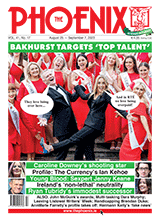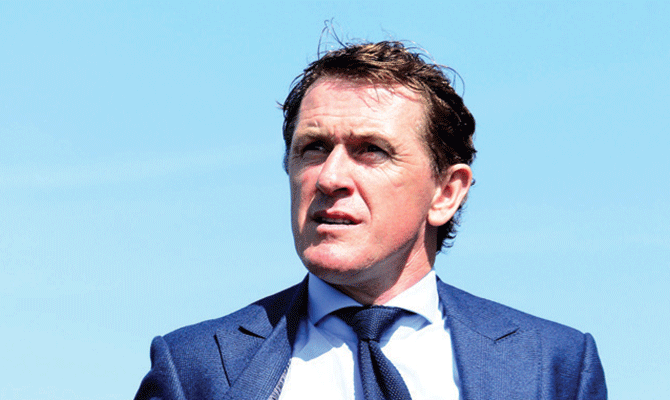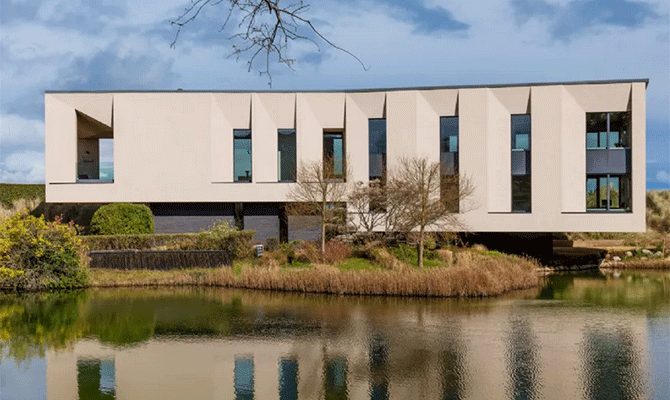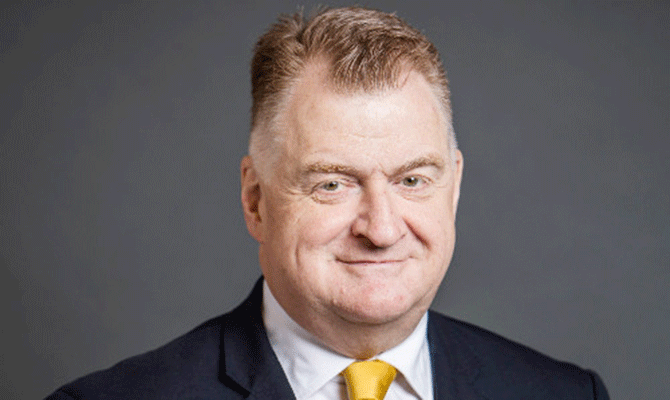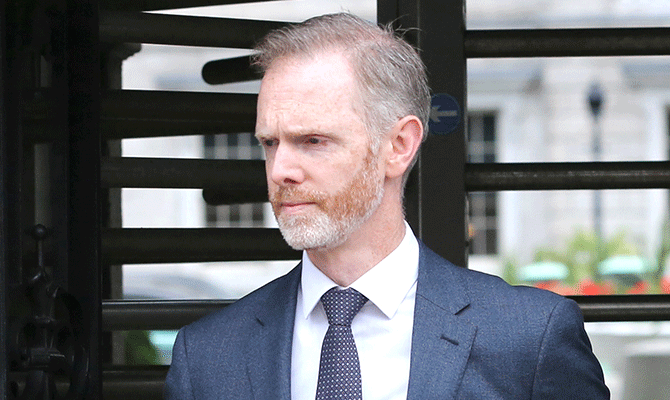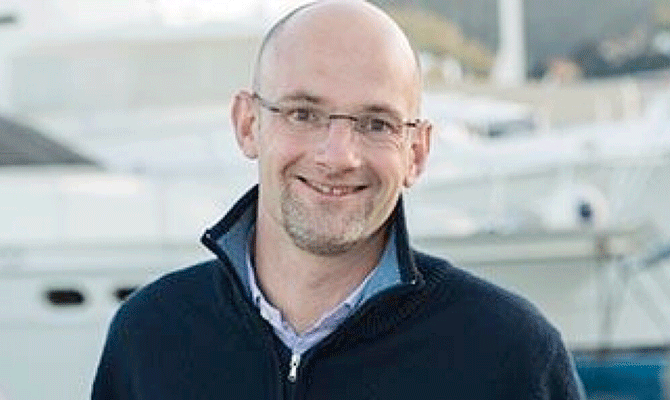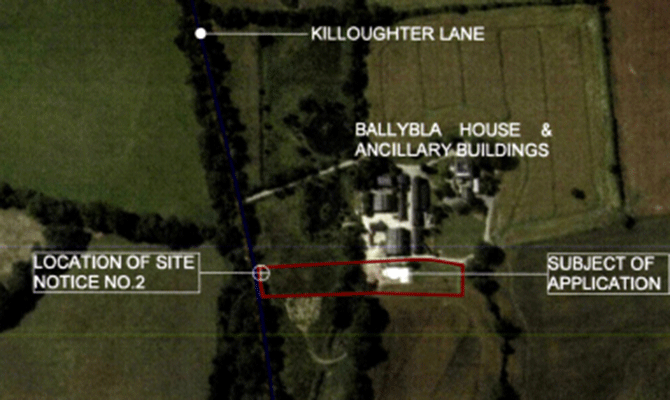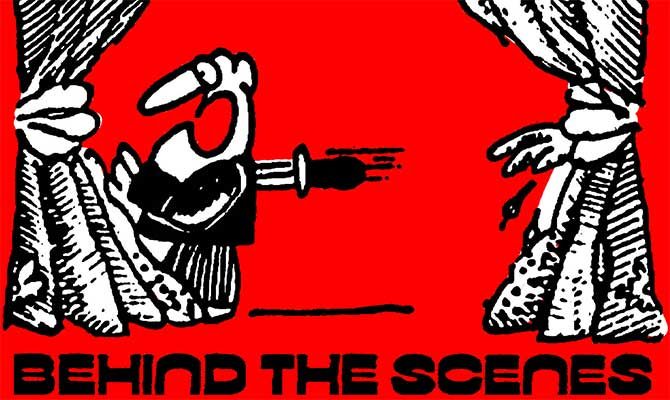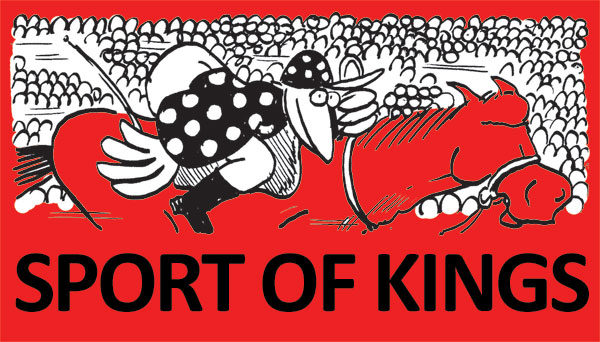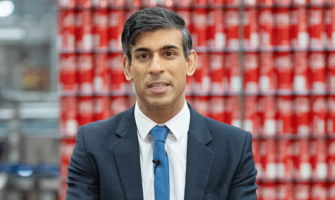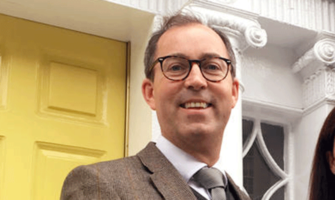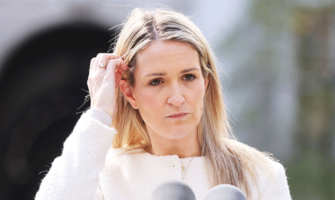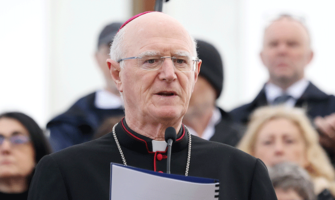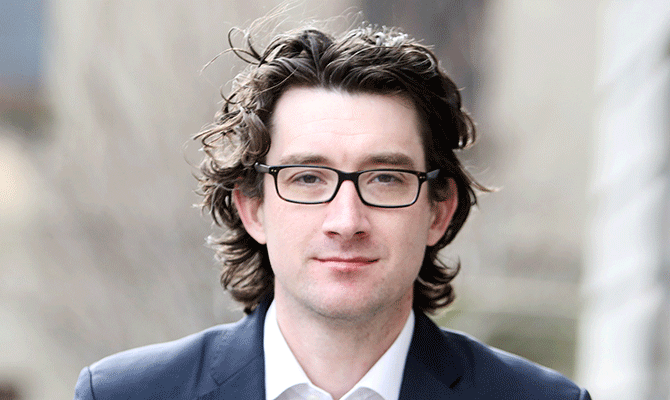
Ian Kehoe
IN A little under two months the latterly eventful five-year term of Ian Kehoe as a member and deputy chair of the RTÉ board draws to its conclusion. While from the current vantage point it seems unlikely that the co-owner and founder of The Currency business website will be lobbying hard for a second stint at the scandal-ridden national broadcaster, he may have unfinished business.
The former editor of the Business Post has one or two more hurdles to jump before time is called on his first term in Montrose. RTÉ has lurched back into the political spotlight this month over the hidden payments to Late Late Show presenter Ryan Tubridy and the focus is about to turn to the board. The question is what’s next for Ian Kehoe.
With Tubs now jettisoned, some of the immediate pressure is off but there are still plenty of questions to be asked – and answered. Happily for Kehoe (coincidentally a good pal of Tubs stand-in Oliver Callan) and his fellow directors, the publication of Grant Thornton’s second report into the controversy last week put the ball squarely back in former director general Dee Forbes’s court and the RTÉ executive’s after weeks of relative radio silence.
Commissioned by the board’s audit and risk committee – upon which Kehoe also sits – the accountants’ investigation uncovered evidence of poor management controls and a lack of candour on the RTÉ executive’s part when it came to communications with the board.
For example, the Irish Times reported that no less than three separate Deloitte reports were prepared for the national broadcaster’s finance staff but were not passed on to the board despite being addressed to Kehoe and company. Moreover, the remuneration and management development subcommittee – which considers appointments and executive remuneration packages – was not informed in advance of the details of the ‘top talent’ earnings list prior to its publication in January 2021.
That these apparently damning findings can be chalked up as some kind of vindication for the board was evident in chairwoman Siún Ní Raghallaigh’s comments after their publication.
“Regrettably,” she said, the report “confirms our view of the siloed management culture that has prevailed in RTÉ”, while she bemoaned the fact that the executive “did not properly engage” with the board on these matters.
Yet, plenty of questions remain and a date with the Oireachtas media committee may well be on the cards before Kehoe’s RTÉ tenure is up in October. The media committee’s chair, Fianna Fáil TD Niamh Smyth, was clear last Wednesday that the “blind-sided” board of the broadcaster should be given the chance to address Grant Thornton’s findings before the committee.
“Ian Kehoe, I understand, is the deputy chair of the board of RTÉ,” Smyth noted pointedly, “and he hasn’t had an opportunity to come before us and I think that would be most useful.”
Indeed, the one-time high-profile Kehoe has been conspicuous by his absence in the proceedings over recent months, particularly on the two days in June and July during which several of his colleagues gave evidence to the Oireachtas committee. Clearly, the serious-minded hack, with his media background and experience of courtroom grillings (courtesy of Denis O’Brien’s failed libel action against the Post), would have been an ideal candidate to represent RTÉ’s audit and risk committee alongside committee chair Anne O’Leary and employee board rep Robert Shortt.
TRICKY POSITION
It seems particularly noteworthy given that Kehoe has established a reputation of challenging the executive’s direction. As Goldhawk pointed out at a time when the race to succeed Dee Forbes was heating up in February, an article appeared in the Sindo that had the effect of burnishing that reputation (see The Phoenix 24/2/2023).
Reporting on the minutes of a board meeting from last September, released under Freedom of Information, Mark Tighe wrote that Kehoe “questioned the methodologies behind the broadcaster’s internal financial projections and modelling”. The former Post editor also claimed that the broadcaster’s revenue projections looked “optimistic”.
There is no doubt that Kehoe finds himself in a tricky position. When the controversy hit the headlines earlier this summer, his status as both poacher of news stories – in his day job reporting for and editing The Currency – and gamekeeper on the board at the centre of the controversy would have been seen as uncomfortable, at least privately in some corners of the media.
It was an open question as to how he would, as editor of a national news website that routinely reports on the business of media, square that particular circle. The rubber hit the road early in the scandal when his business partner and Currency chief executive Tom Lyons became a regular fixture in RTÉ’s coverage of the debacle. Appearing on the likes of Brendan O’Connor’s weekend radio show, Today With Claire Byrne and even News at One, it became clear, however, as Goldhawk pointed out at the time, that Kehoe’s double role was not an issue for the national broadcaster at least.
The Currency also attempted to clear its lines, with Lyons telling News at One that he and Kehoe had discussed the matter and were in agreement with Kehoe’s stance that he could have “no further editorial engagement” with the story (see The Phoenix 30/6/2023) – hardly a good look for a news website.
Standing in for his boss, who normally writes The Currency’s editorial wrap up of the week’s headlines, deputy editor Thomas Hubert wrote: “Our editor Ian Kehoe, who usually reflects on the week that was, is a member of RTÉ’s board and of its audit and risk committee. This conflict of interest means that he has handed over to me editorial oversight of all coverage of the State broadcaster.”
It would certainly have been impossible for Kehoe to have any input, although the board of RTÉ itself has generally avoided much criticism, despite its utter lack of effectiveness. This must have come as a relief to Kehoe but he and his fellow directors have hardly escaped unscathed. For example, corporate governance expert David Duffy told RTÉ last week that the board should have been “asking probing questions” and should have demanded oversight of the politically sensitive issue of ‘top talent’ pay.
Moreover, the effectively inert board is set to come under the spotlight as a result of the ongoing corporate governance review, with Bob Semple (brought in by new RTÉ director general Kevin Bakhurst) examining how the directors responded to the Tubridy scandal. His report is not expected to make for easy reading for Ní Raghallaigh’s board.
Ironically, last year ex-chair Moya Doherty told the Oireachtas media committee that the board at Montrose had focused on “ensuring the highest standards of corporate governance… which is critical to public and stakeholder confidence”.
The good news for Kehoe is that last September the board members decided that, since they were doing such a good job, they should start getting paid their €16,000 per annum fees again, having waived them as part of a previous cost-cutting move.
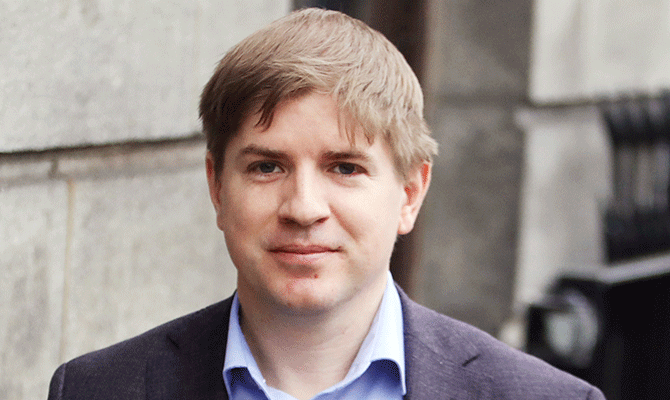
Tom Lyons
MINOR RENAISSANCE
Ian Kehoe was appointed to the board in October 2018, some four months after he announced his departure from the then Sunday Business Post, which he had edited since 2014. His decision to bid farewell to the organ at which he had spent the entirety of his journalistic career – apart from a two-year stint as a reporter and presenter on RTÉ’s Prime Time programme – followed shortly after the paper was bought by millionaire sailor and occasional businessman Enda O’Coineen.
Goldhawk noted in 2018 that even the most jealous back-biters in Irish business media would have to admit a “grudging respect for the minor renaissance” that took place at the paper during Kehoe’s tenure (see The Phoenix 14/12/2018).
His stint in the editor’s chair was marked by a tendency never to undersell a business story but he often had to be led by the nose on other big stories.
A prolific writer himself, Ian Kehoe has never been one to fade into the background and his byline routinely appeared on page one.
But things could have taken a very different turn for Kehoe, as fans of Goldhawk will recall (see The Phoenix 3/5/2019). It transpired that he and Lyons had approached Grant Thornton – at some point before O’Coineen’s bid was accepted – looking for funding to acquire the title from Conor Killeen’s Key Capital but were ultimately unsuccessfully.
Next up was the business news website The Currency, modelled pretty much on US sports website The Athletic. Its lofty “overarching philosophy” is the creation of “journalism that is fearless, focused and always interesting”, and free from “any corporate, sectoral or political interest – including our own”.
At a pricey €25 a month for a subscription, however, the site is squarely aimed at Ireland’s executive and professional classes. After all, independent or not, it operates within the same commercial reality as the rest of Ireland’s corporate media. That means that alongside all the occasionally insightful analysis and hard-hitting, favour-free journalism sits the usual soft-soap articles about companies such as the website’s sponsor, Investec – for example on “the huge value and benefit” of the investment bank’s sponsoring of women golfers.
The good news is that the strategy seems to be working, with Currency Media Ltd raking in net profits of €300,000 in the year to the end of September last. What the future has in store is unclear but surely Kehoe and Lyons will be looking to flip the business when the opportunity arises. The Athletic was acquired by the New York Times last year and duly replaced the newspaper’s sports department.
Who might be interested in The Currency is a subject of much discussion by business hacks, especially since the arrival on these shores of international players such as Mediahuis and Bonnier News.
Kehoe’s future with RTÉ remains unclear as the days tick down on his tenure. His appointment to the board in 2018 by then outgoing minister for communications Denis Naughten was barely commented upon, coming as it did at the end of four solid years at the helm of a national print publication.
At the time, Kehoe was more or less a free agent and no doubt the ambitious journo calculated that the board seat offered an opportunity to improve his status within the industry. Equally, it was a chance to see how the sausage is made at the national broadcaster where, down the line, his talents might feasibly be in demand for a more hands-on role.
But all is changed utterly since the revelations about Tubridy’s pay came to light in June. Questions remain about just how active the board was in looking for answers and taking the executives to task over what Ní Raghallaigh thinks are deep-rooted, long-running issues around corporate governance.
If Ian Kehoe has one eye on an exit strategy at The Currency, he would be supremely confident that his skills are required more than ever to dig Montrose out of its current hole.
The ultra-competitive hack has always been in a hurry – business editor of the Post in his 20s, later somehow gazumping hot favourite Pat Leahy for the editor’s job there, then trying and failing to buy the paper, and now running The Currency website while also on the board of RTÉ.
The question, at 42, is where does he go next.



